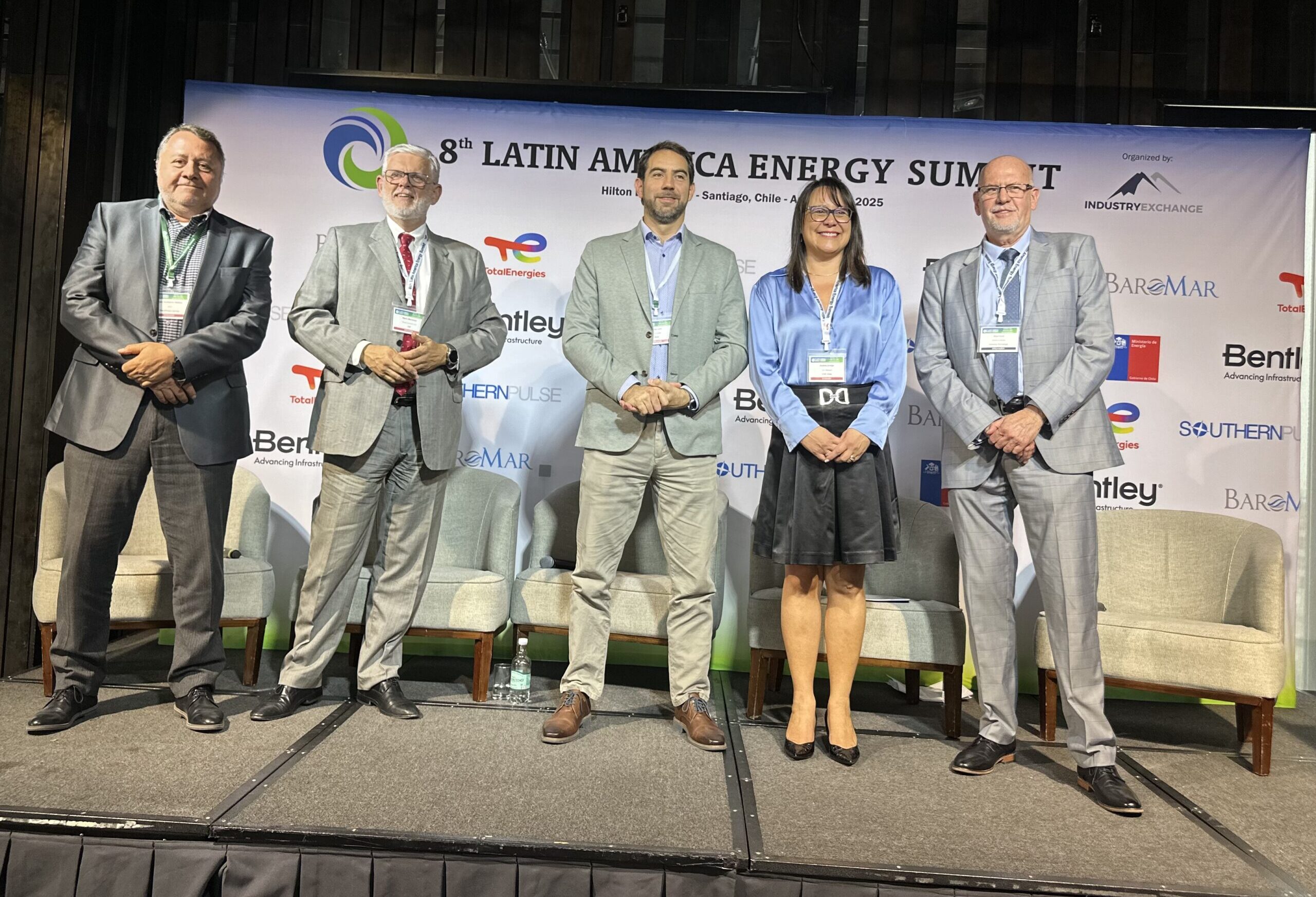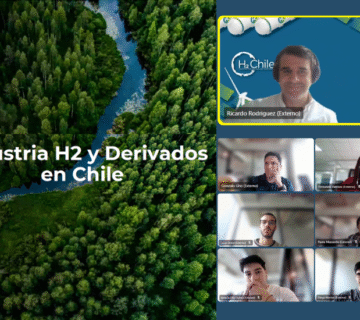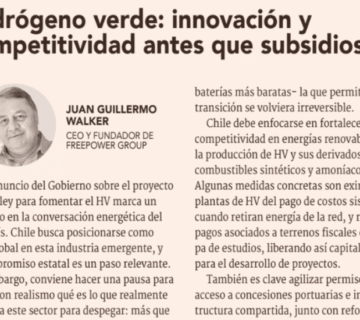At the 8th edition of the Latin America Energy Summit, held in Chile on April 9 and 10, FreePower Group played a prominent role through the participation of its CEO, Juan Guillermo Walker, in the panel «How far has clean hydrogen development progressed?» where he shared insights on the current state and future of this emerging industry.
Santiago, April 2025. Green hydrogen has evolved from being a promising trend to becoming a key pillar of global energy strategies. In this context, Walker emphasized, “Hydrogen and its projects are a long-distance race,” underscoring that the successful deployment of this technology demands strategic vision, strong public-private collaboration, and a territorial development approach.
During his remarks, Walker presented the progress made by FreePower Group, a Chilean company founded in 2018 that currently leads two of the most ambitious green hydrogen projects in the Magallanes region: Cabeza del Mar and Frontera. With a projected capacity of 2.8 GW, Cabeza del Mar aims to produce up to 1,200,000 tons of ammonia annually, leveraging high-efficiency wind energy with capacity factors exceeding 60%.
“We have a unique opportunity to produce green ammonia at costs below USD 1,000 per ton, thanks to the lowest levelized energy costs in the world, near USD 20/MWh,” explained Walker. “This positions us as a globally competitive player, even against countries offering significant subsidies, but unable to match our natural advantages.”
Beyond the technical milestones, Walker highlighted the importance of early community engagement, the need for improved local infrastructure, and the coordination between public and private stakeholders. “These are transformative projects that will reshape entire territories. It is essential to lay the groundwork through citizen participation, technical training programs, and organized industry collaboration—such as the work we lead with H2V Magallanes,” he stated.
One of the key takeaways from the panel was the consensus around ammonia’s role as an energy vector. While initially conceived as a carrier for hydrogen, Walker noted that ammonia is now emerging as an alternative fuel—particularly in markets such as Asia, where its use in power generation could become a structural shift for the energy sector.
“The real trigger for this demand will come from carbon-free thermal power generation. Combusting ammonia means stepping out of the CO₂ cycle, and that’s a game changer for countries like Japan, South Korea, and China,” he added.
In closing, Walker reflected on the evolution of disruptive industries, drawing a parallel with the early days of renewable energy in Chile. “Back in 2006, we were called dreamers when we spoke about wind power. Today, we face the challenge of excess renewable generation—a good problem to have. Hydrogen is part of the solution,” he concluded.
With this participation, FreePower Group reaffirms its commitment to sustainable energy development, bringing from Chile a clear vision, concrete projects, and thought leadership that contributes to the global energy transition.





